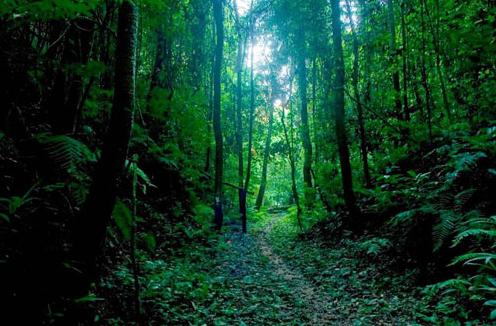C African countries to join UN forest monitoring system
 0 Comment(s)
0 Comment(s) Print
Print E-mail China.org.cn, July 26, 2012
E-mail China.org.cn, July 26, 2012
Ten Central African countries will take part in a United Nations-backed initiative that will help them set up national forest monitoring systems and strengthen cooperation among nations in the region, it was announced today.
|
|
|
Photo: FAO/Giulio Napolitano |
The initiative targets the forests of Africa's Congo Basin, which consist of some 200 million hectares and are one of the world's largest primary rainforests, second only to the Amazon. The region's forests also support the livelihoods of some 60 million people.
The €6 million initiative (approximately $7.3 million) will help protect these forests from direct threats such as land-use change and unsustainable logging and mining, and will provide up-to-date and accurate information on the current state of forests that will help countries manage and prevent forest degradation activities.
The project will be jointly managed by the Central Africa Forests Commission (COMIFAC) and the UN Food and Agriculture Organization (FAO) in close collaboration with the Brazilian National Institute for Space Research (INPE).
"Learning from Brazil, the national forest monitoring system is the key element to pave the road for substantive international support to protect forests and promote sustainable forest management," said the Assistant Director-General of the FAO Forestry Department, Eduardo Rojas.
The 10 participant countries are Burundi, Cameroon, Central African Republic (CAR), Chad, the Democratic Republic of the Congo (DRC), Republic of Congo, Equatorial Guinea, Gabon, Rwanda, and São Tomé and Principe.
FAO will provide technical support to the countries, enabling them to use remote sensing technologies to estimate forest cover and forest cover changes as well as to estimate the amount of carbon stocks contained in forests in the region.
The initiative will be funded through The Congo Basin Forests Fund, launched by the Governments of Norway and the United Kingdom through the African Development Bank.
The project will also assist countries in preparing funding proposals for creating sustainable forest monitoring systems for each country, as part of the REDD+ initiative (Reducing Emissions from Deforestation and Forest Degradation in Developing Countries).
The REDD+ initiative seeks to create a financial value for the carbon stored in forests, offering incentives for developing countries to reduce emissions from forested lands and invest in low-carbon paths to sustainable development.







Go to Forum >>0 Comment(s)